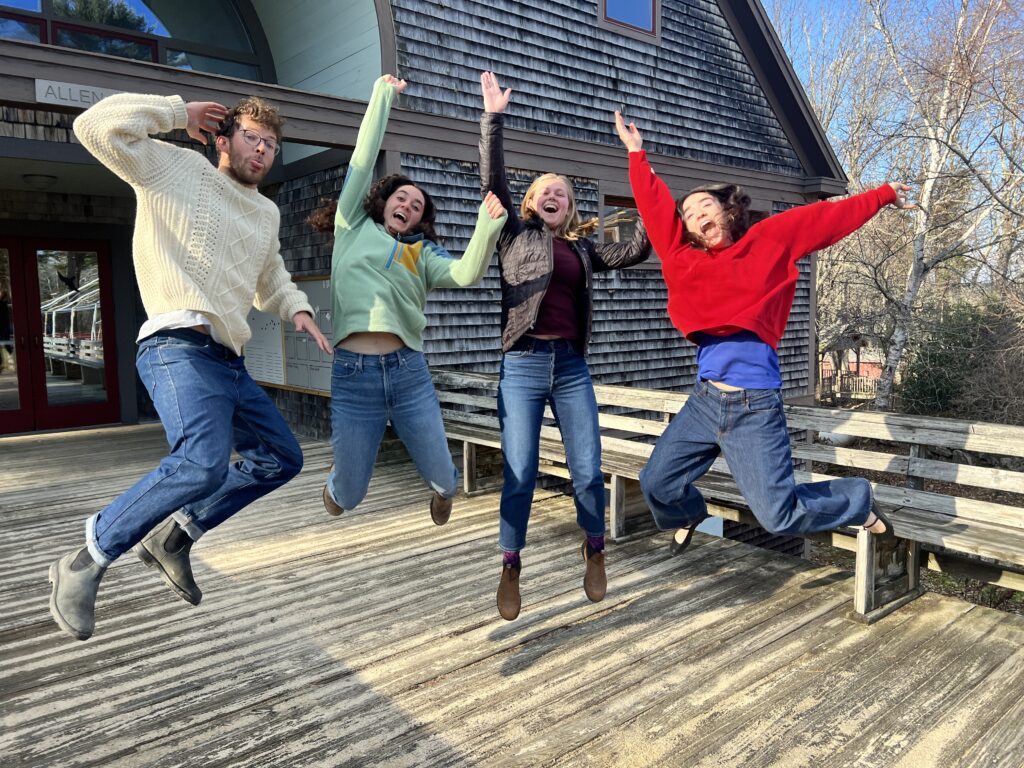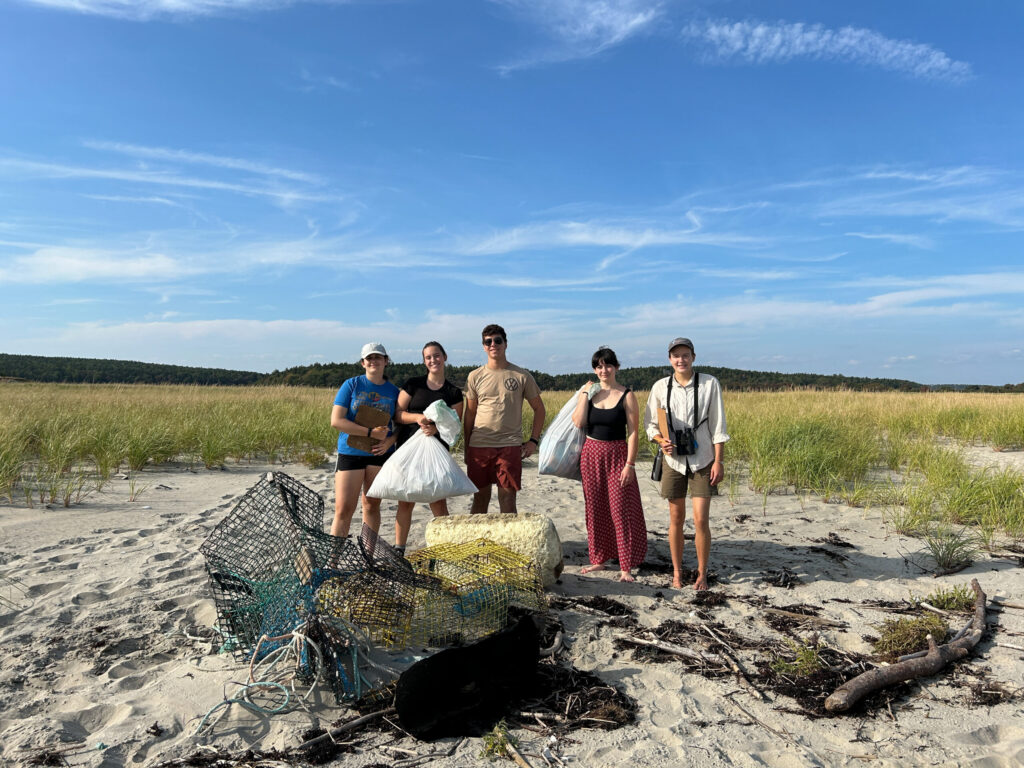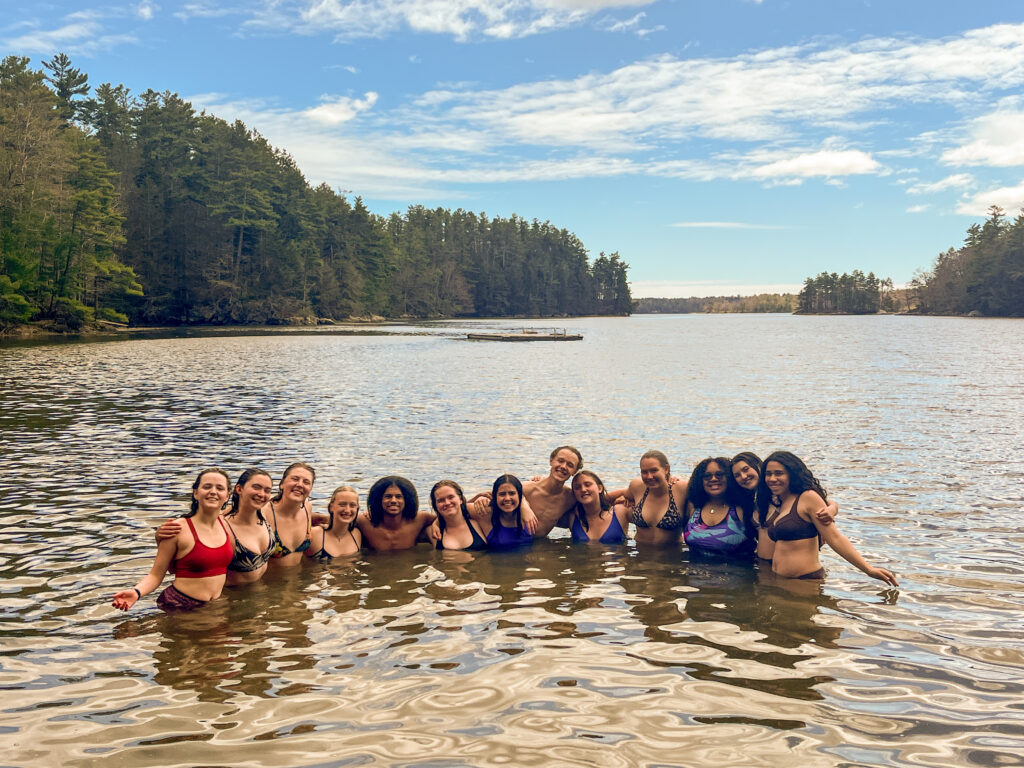Back at home, our friends are lifting their hands only to swipe a metro card or drive to school. How bittersweet our memories of low muscle mass are. The same day we left behind sports practices, after-school activities and free time, we were setting up for a lifestyle that would engage muscles we didn’t even know we had. All of our first letters home to friends and family had a similar theme: we’re having fun, really we are, but we’ve never been this tired. Weeks later, we’ve adjusted to life at Maine Coast Semester excellently. The first cabins on farm chores have grown fond of seeing the sunrise through the trees while feeding the animals, routine composting and dish crew have become habits instead of chores, and work program and outdoor skills are just parts of our weekly schedule.
This past couple of weeks, the girls of Ranch have been working their way through early morning farm chores. As their rotation comes to a close, they reflect on the time before they were accustomed to rising at 5:50 to gather compost and slop buckets in the Wallace at dawn. My chore, with Ella (Avenues: The World School, New York City) has been feeding pigs and sorting compost. Both initially hesitant to carry the compost wheelbarrow to the farm from campus, we’ve developed a system for getting swole: one of us takes it up, the other takes it back, and the next day we switch, and Ella does compost while I feed the pigs, whom I have named affectionately.
After I finish feeding the pigs and making sure their water spout hasn’t frozen over in the night, Ella and I help the rest of our cabin with communal chores and try to be as efficient as we can so we can shed our overalls before breakfast. Now that we can rely on each other so well as a team, we’ve even been given a later start time! In New York, neither Ella nor myself “become real people” before 8:30 am, and neither of us has had experience with consistent manual labor like the Chewonki program before. While to a prospective student in a city the prospect of Chewonki’s full days might seem daunting, Semester 62 students adapted easily to the demanding physical aspect of the program.
The collaborative aspect of work programs, morning chores, and dish crews has brought us closer with students we don’t live in cabins with and don’t engage in classes with, and given us new ways to bond in the program. “There’s no better to way to make a new friend than feeding the furnace at 7 am,” says Emily (Concord Academy, Concord, MA). Since our community has so few maintenance staff members, the students and faculty work together to keep community spaces clean and operating.
The responsibility placed on students to maintain clean cabins and tidy spaces throughout their school and living environments fosters a heightened sense of respect for Chewonki and the fellow students and faculty who take care of our campus.
At the beginning of the semester, Farm Manager Megan Phillips shared with semester students a quote about hands looking for work that is real. Semester 62 students can confirm that this work is, indeed, real. Jessica of the Westminster Schools in Atlanta, GA, says she feels her academic experience has been enhanced by the tactical skills that she has gained through integrated manual labor in the Chewonki program.
On wilderness trips, students learned to be even more self-sufficient and team-oriented than they had become their first weeks prior at Maine Coast Semester. “My wilderness trip at Katahdin Woods and Waters was the most unique outdoor experience of my life — and I live in Vermont! Coming home to Haskell Hut after braving the cold on cross country skis to no light, no heat, and no running water to cook dinner together really bonded our Wilderness trip group. I’ve never felt like I deserved sleep more,” says Emma (Burlington High School, Burlington, VT).
Semester students have found fulfillment in the physical work that helps their community run. Students who have been on farm chores happily live up to the expectations of nurturing other community members. “It’s an amazing feeling to feed a farm full of animals before I feed myself” Ella (Green’s Farms Academy, Westport, CT).
As we wrap up our first month on Campus, students reflect on how strong they have become. Paige Bohart of the Ethical Culture Fieldston School comments “I love being yolked. None of my home friends are yolked. The joys of nurturing the Chewonki community have rendered me Emotionally Swole.”
Many have realized that they can endure more than they expected. “A year ago, I never thought that I would enjoy fixing a plow and chopping wood as much as I do currently. I’m impressed by how strong I have become in this past couple of weeks,” remarks Mae (the Berkeley Carrol School, Brooklyn, NY).
Isla, The Chapin School, New York, NY













